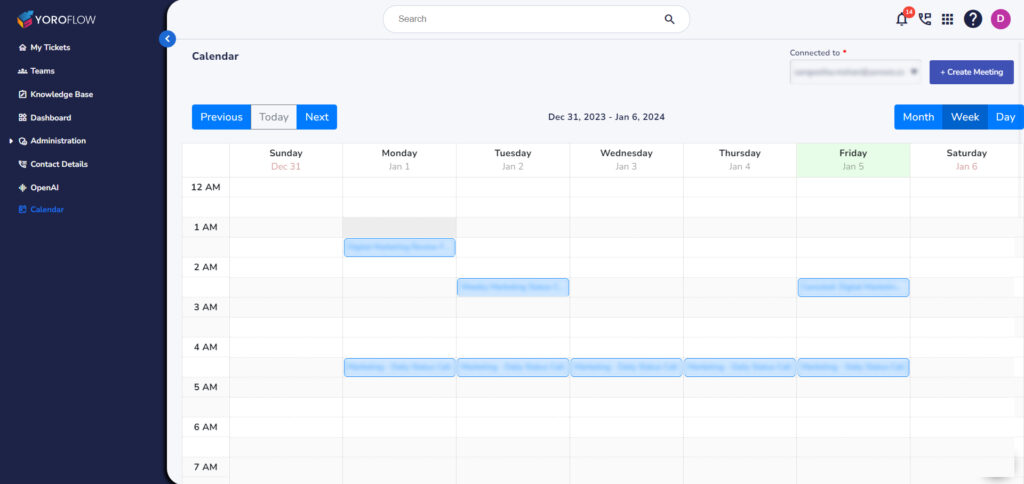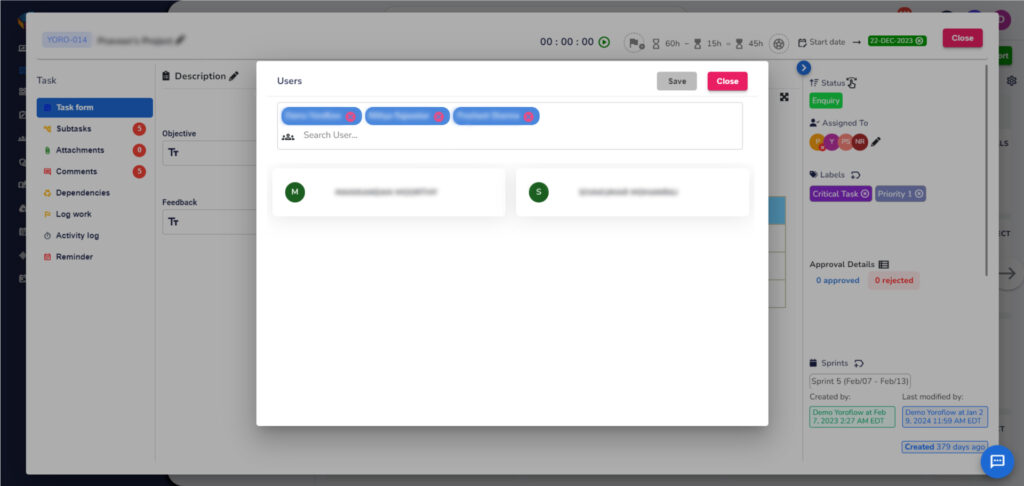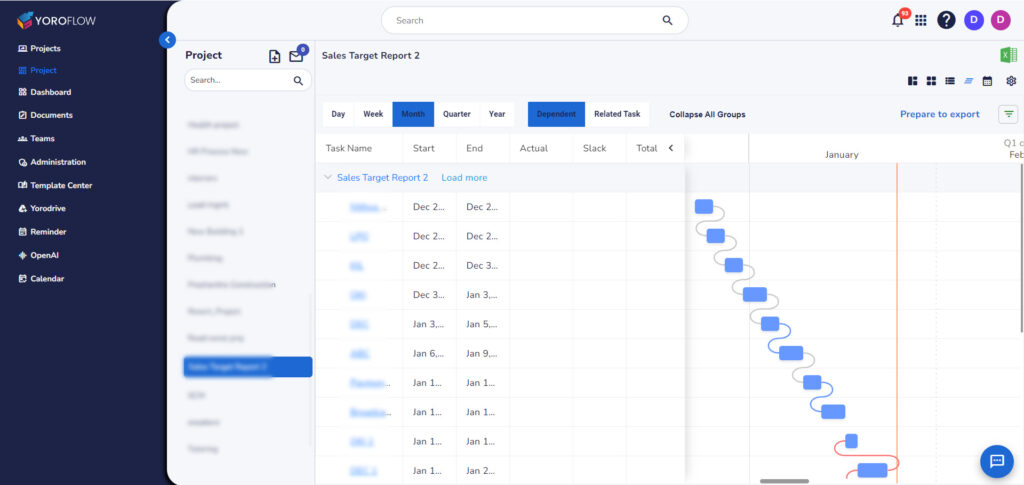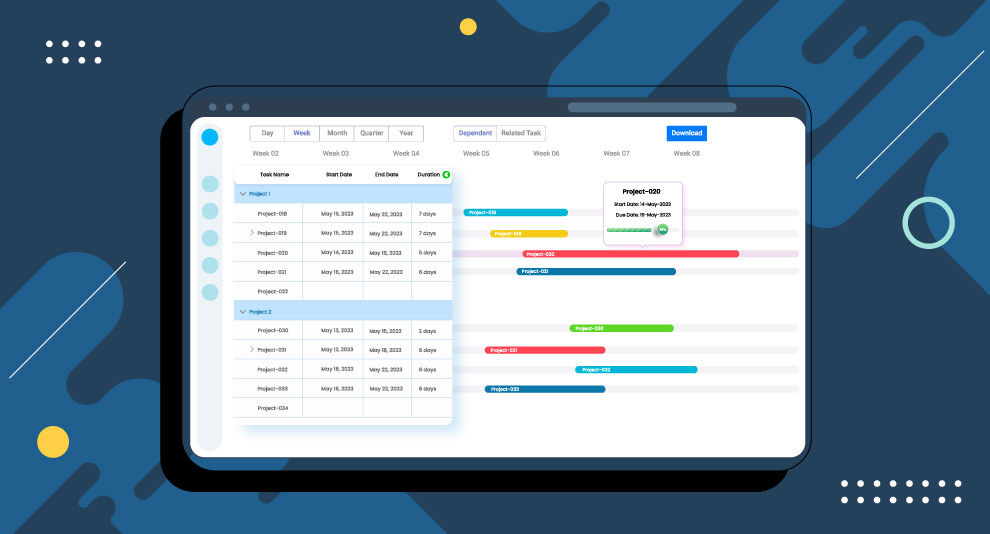Table of Contents
Managing projects can be challenging, especially for startups. Traditional project management techniques often involve rigid processes that may feel restrictive. However, it’s essential for businesses, including startups, to have a solid project management framework to guide their teams and allocate resources effectively.
There are various methodologies and specialized software available for creating a project management framework tailored to your industry, sector, and project type. New, more flexible methodologies are continually being developed to improve project management practices.
This guide will help you build a flexible, customized project management framework that suits your startup or small business.
What is a Project Management Framework?
A project management framework is a set of processes, practices, and tools that are used to plan, execute, monitor, control, and close a project. It provides a structured approach to managing projects, ensuring that they are completed on time, within budget, and according to specifications.
How Are Project Management Frameworks Organized?
Project management frameworks are typically organized around a set of processes or phases that a project goes through from initiation to closure. While the specific organization can vary depending on the methodology or approach being used, most project management frameworks include the following key components:
- Initiation: This phase involves defining the project’s purpose, objectives, scope, and deliverables. It also includes identifying key stakeholders and securing their approval to proceed with the project.
- Planning: In this phase, the project team develops a detailed project plan that outlines the tasks, resources, budget, and timeline for the project. This plan serves as a roadmap for the project and helps ensure that all stakeholders are aligned on the project’s goals and objectives.
- Execution: This phase involves carrying out the project plan, including assigning tasks to team members, managing resources, and monitoring progress against the plan. The project manager is responsible for overseeing the execution phase and ensuring that the project stays on track.
- Monitoring and Controlling: Throughout the project, the project manager monitors progress, identifies any issues or risks that may arise, and takes corrective action as needed to keep the project on track. This phase also involves communicating with stakeholders to keep them informed of progress and any changes to the project plan.
- Closing: Once the project is complete, the project manager closes out the project by ensuring that all deliverables have been met, obtaining final approval from stakeholders, and documenting lessons learned for future projects.
Essential Project Management KPIs for Startups
For startups, it’s crucial to track key performance indicators (KPIs) to ensure that projects are on track and delivering results. Here are some essential project management KPIs for startups:
- Project Progress: Measure the progress of your projects against the planned timeline. This KPI helps you identify any delays or bottlenecks early on so that you can take corrective action.

- Budget Variance: Track the actual project costs against the budgeted costs. This KPI helps you ensure that you are staying within budget and can identify any cost overruns that need to be addressed.
- Resource Utilization: Measure how effectively your resources are being utilized on projects. This KPI helps you identify any resource constraints and optimize resource allocation.

- Quality Metrics: Track the quality of your project deliverables against predefined quality standards. This KPI helps you ensure that your projects are delivering high-quality results.
- Customer Satisfaction: Measure customer satisfaction with your projects. This KPI helps you understand how well your projects are meeting customer expectations and identify areas for improvement.
- Risk Management: Track the number of identified risks, the severity of risks, and the effectiveness of risk mitigation strategies. This KPI helps you proactively manage risks and minimize their impact on your projects.
- Schedule Adherence: Measure how closely your projects adhere to the planned schedule. This KPI helps you identify any schedule deviations and take corrective action to keep your projects on track.

By tracking these essential project management KPIs, startups can ensure that their projects are successful and contribute to their overall business objectives.
In a Nutshell
In summary, a project management framework is a valuable tool that simplifies project launches, streamlines workflows, and sets clear goals and deadlines for successful completion. Your framework can be tailored to your startup and industry, whether highly specialized or more flexible.
Regularly revising your project management framework is crucial to ensure it maximizes efficiency and ROI while minimizing resource use. Utilizing advanced solutions like the Yoroproject platform enables accurate tracking of work hours and real-time measurement of team productivity, providing complete control over projects and results.




